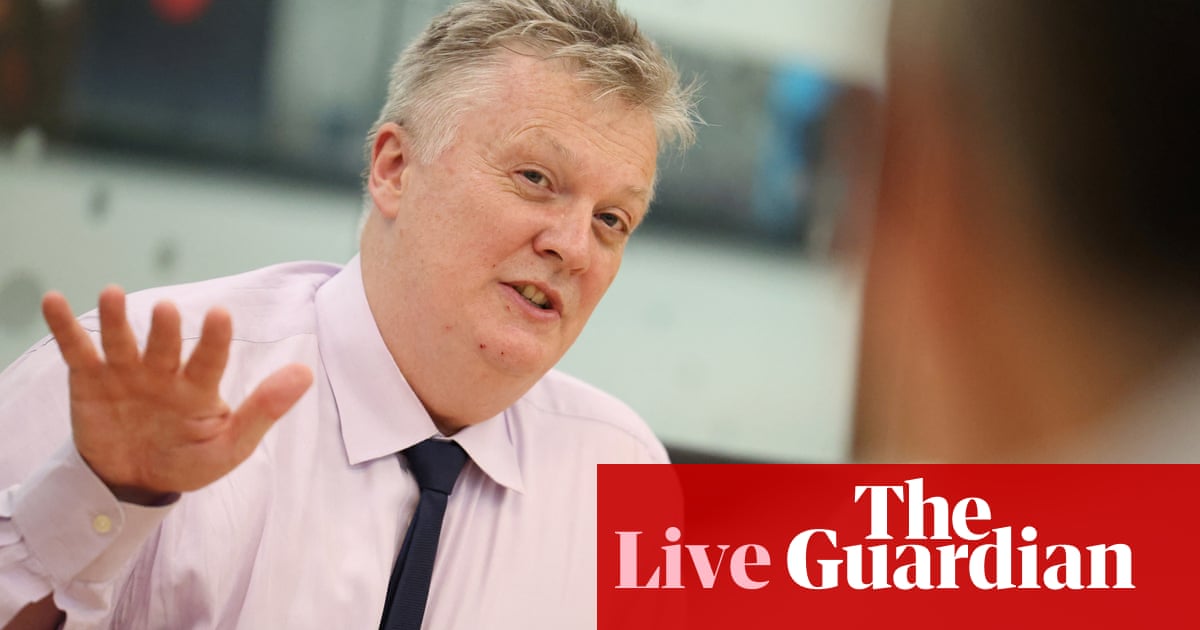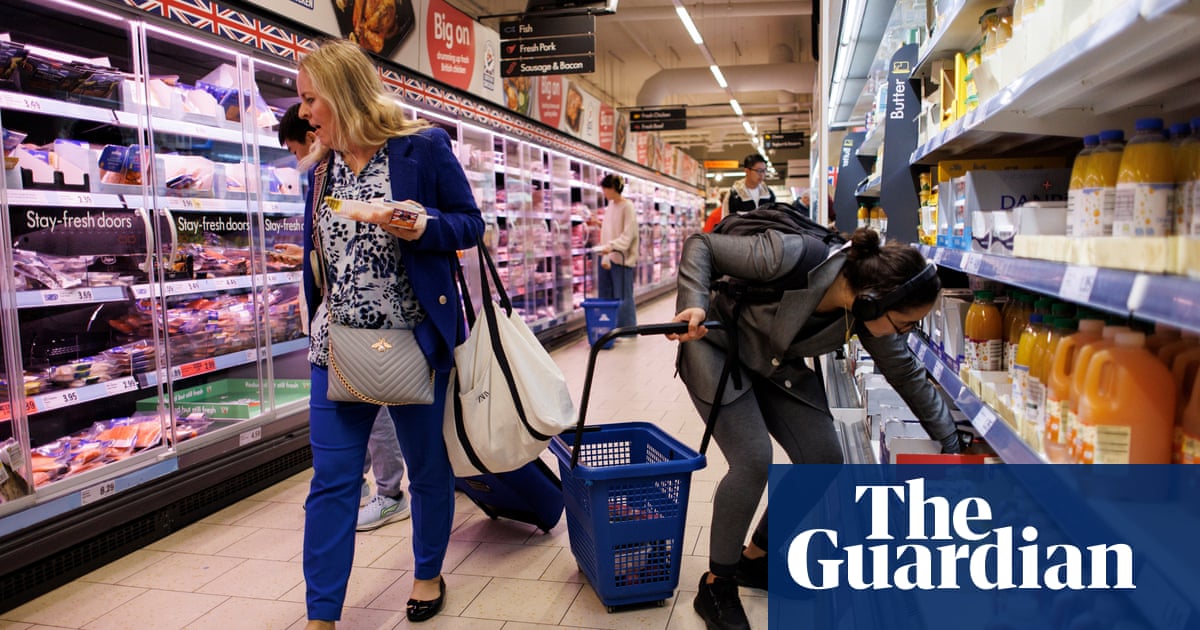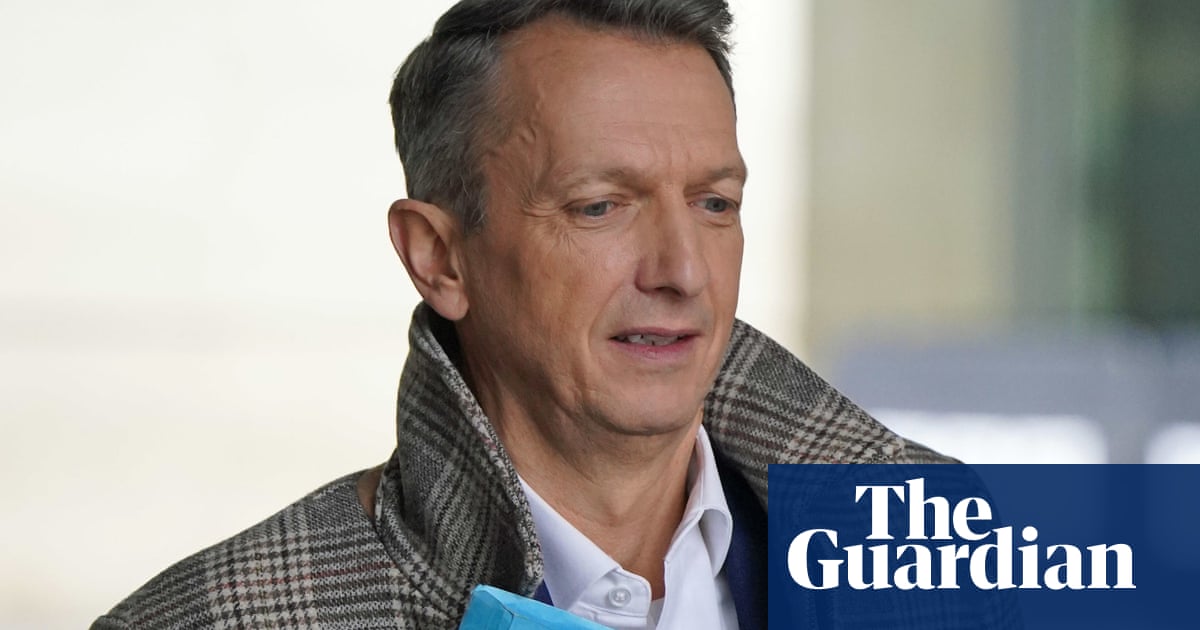
BoE"s Pill: More work needed to bring inflation to 2%
The chief economist of the Bank of England is warning this morning that the BoE has more work to do to meet its inflation target.
Huw Pill is speaking at an event organised by the thinktank OMFIF (the Official Monetary and Financial Institutions Forum).
And he begins by insisting that the BoE is committed to achieving its mandate to bring UK inflation to 2%.
UK inflation was 6.7% in August (we get September’s reading on Wednesday), which Pill points out is still well above the Bank’s target.
And although headline inflatiion has fallen from the 40-year highs seen last autumn, Pill hints that the Bank may take further action to bring it sustainably to 2%.
He tells his audience:
We still have some work to do, in order to get back to 2%.
And we probably have some work to do, to ensure that when we get back to 2% we do so in a way that is sustainable through time.
The fact headline inflation is now falling, is “certainly not sufficient” for us to be able to say that the job is done, Pill adds.
Closing post
Time to wrap up… here are today’s main stories:
Sam Woods: Last 12 months have been a rough ride
Sam Woods, the head of the Bank of England’s Prudential Regulation Authority, will tell City bigwigs tonight that it has been “a rocky year” for the banking sector.
The last 12 months have seen the failures of Silicon Valley Bank and Credit Suisse, Woods will tell attendees at a banquet at Mansion House tonight,
But Woods will also argue that the past 15 years of financial reform have been “a success story”.
He will argue:
We have built a regime that can withstand shocks including bank failures without falling over.
Nonetheless we must learn as we go along and there remains much to be done – and I hope I have managed to explain how our various reform strands fit together. These are about completing the mission we were set after the 2008 crisis, rather than fundamentally re-thinking regulation.
Looking ahead, we must remain alert. It’s been a rough ride over the last 12 months but we come through it stronger.
Here’s an interview we conducted with Woods last month, where he talked about the intensity of recent times.
After a choppy day, European stock markets are now showing small gains again.
Both the UK’s FTSE 100 and Germany’s DAX are up around 0.2% in afternoon trading, as investors watch developments in the Israel-Hamas war (where Israel is to evacuate residents within a 2km zone next to Lebanon).
Speaking of the Middle East…. Capital Economics have predicted that Saudi Arabia will have the weakest GDP growth in the Gulf this year.
They predict that the Kingdom’s cuts to oil production (to support crude prices) will hit economic activity, saying:
Saudi Arabia’s economy is in a recession and, with oil output cuts extended until the end of this year at least, GDP will contract further. We think that the economy will shrink by 1.3% this year which is towards the bottom of the consensus range and would be the worst performance among the Gulf economies in 2023.
Nonetheless, this weakness is being driven by lower oil output. The non-oil economy has performed well. And with the government committed to sustaining its loose fiscal stance over the coming years, economic growth will pick up over 2024-25.
Eurozone finance ministers have been arriving in Luxembourg for their monthly Eurogroup meeting, where they’ll discuss the economic outlook with US Treasury Secretary Janet Yellen:
The US stock market has opened higher, despite anxiety over the situation in the Middle East.
The Dow Jones industrial average has gained 247 points, or 0.75%, to 33,918.
Most of the 30 stocks on the Dow are up, with chipmaker Intel (+1.5%) leading the way, along with insurance group Travelers (+1.6%) and footwear and clothing firm Nike (+1.4%).
The tech-focused Nasdaq Composite has gained 0.5%
Over in New York, shares in Manchester United have fallen over 11% at the start of trading.
The selloff comes after Sheikh Jassim bin Hamad al-Thani withdrew from the process to buy the club, viewing the current owners’ valuation as highly unrealistic.
This leaves businessman Sir Jim Ratcliffe in the driving seat to secure a deal, with the club’s board expected to vote on Ratcliffe’s bid to buy a 25% share in the club for about £1.3bn in the coming days.
UK withdraws draft rules on additional reporting requirements for companies
The UK government has withdrawn draft regulations that would have added new reporting requirements for large private and publicly listed companies.
Those regulations would have included an annual resilience statement, distributable profits figure, material fraud statement and triennial audit and assurance policy statement.
But the plan has now been ditched, with the governmans saying it will “cut red tape for businesses”.
The u-turn follows a consultation with businesses, the Department for Business and Trade says.
The Business Secretary has now decided to withdraw these regulations, and will be setting out options to reform the wider framework shortly to reduce the burden of red tape on businesses, the department adds.
Nomura’s European economist George Moran has three ‘takeaways’ from Huw Pill’s discussion at OMFIF this morning:
The BoE’s commitment to hold rates high for longer may be flexible if there is a shock or the data no longer suggest it is necessary.
The signal from official wage data has weakened and instead Pill favours looking at broader measures of wage growth.
The BoE may become less reactive to data in the short-term if Mr Pill’s approach to focus more on the medium-term outlook is adopted more broadly. Any individual print also carries less weight by Pill as he favours an “eclectic” view of the data.
US Treasury Secretary Janet Yellen is urging eurozone finance ministers to move ahead with plans for €50bn in fresh aid to Ukraine.
The text of remarks which Yellen will give to the eurogroup meeting today show that she will also pledge that the White House, and a majority in Congress, will “fight” to provide new US assistance for Ukraine.
Yellen, who is attending the meeting in Luxembourg, will say:
“We cannot allow Ukraine to lose the war for economic reasons when it has shown an ability to succeed on the battlefield.”
Yellen will also repeat her support for the idea of using “windfall proceeds from Russian sovereign assets immobilized in particular clearing houses” to help Ukraine.
She will say:
“Ultimately, we are in it together.
Our assistance is crucial to our collective national security interests and to our shared goal of a free and prosperous Europe and world.”
Empire State manufacturing index falls
Business activity edged lower in New York State this month, according to a closely watched poll of firms in the area.
The Empire State manufacturing survey’s index of general business conditions index fell by around seven points to -4.6 this month, down from +1.9 in September.
That’s better than feared – economists had forecast a fall to -7.
The New York Federal Reserve explains:
The headline general business conditions index fell seven points to -4.6. New orders fell slightly, while shipments were little changed.
Unfilled orders declined, and delivery times shortened. Inventories held steady. Labor market indicators pointed to a slight increase in both employment and the average workweek.
Back in the markets, the surge in the oil price in the last week or so has lifted Shell’s share price to a record high today.
Shares of the company rose as high as £27.63 pence in London on Monday, or three times higher than their low of 878.3p three years ago when oil demand slumped in the pandemic.
Rising energy prices and new CEO Wael Sawan’s stronger focus on the core oil and gas business are attracting investors, reports Bloomberg.
The drop in energy prices compared with summer 2022 has helped the eurozone to post a trade surplus in August.
New data shows that the value of imports to the eurozone fell by almost 25% year-on-year in August, to €214.9bn, down from €285bn in August 2022 when natural gas prices had soared.
Exports to the rest of the world fell by 3.9% to €221.6bn, leaving the eurozone with a €6.7bn surplus in trade in goods with the rest of the world in August 2023, compared with a deficit of €54.4bn in August 2022.












